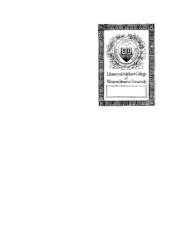You also want an ePaper? Increase the reach of your titles
YUMPU automatically turns print PDFs into web optimized ePapers that Google loves.
37<br />
"Etiam in commentariis sacrorum pontificalium frequenter est<br />
hic ovis et haec agnus ac porcus, quae non ut vitia, sed ut antiquam<br />
consuetudinem testantia debemus accipere,"<br />
and Gellius (XI, 1,4) quoting Yarra:<br />
"Quando nunc quoque a magistratibus populi Romani more<br />
maiorum multa dieitur vel minima vel suprema, observari solet,<br />
ut oves genere virili appellentur; atque ita M. Varro verba haec<br />
legitima, quibus minima multa dieeretur, concepit: 'M. Terentio,<br />
quando citatus neque respondit neque excusatus est, ego ei unum<br />
ovem multam dieo: Ac nisi eo genere diceretur negaverunt<br />
iustam videri multam."<br />
Again Paulus (p. 195) says:<br />
"Ovem masculino genere dixerunt, ut ovibus duobus non<br />
duabus."<br />
From these examples it will be seen that the use of ovis as a<br />
common gender noun suggests that the excerpts from Paulus (p.<br />
104), ovis quae, and from Macrobius (I, 15, 16), ovis quam, refer<br />
to female victims. But I shall show that the ovis Idulis was a<br />
male, and hence the common gender theory does not furnish the<br />
correct explanation of these two prose passages.<br />
Equally suggestive with this study of nouns of common gender<br />
is a study of the gender of pronouns with nouns of unquestionable<br />
gender. I find no examples of feminine relatives modifying<br />
masculine nouns and but one reliable instance of the opposite<br />
process. 20 There is also, however, a passage in Varro's de Lingua<br />
Latina,21 in which the manuscripts give the reading quorum<br />
after a feminine antecedent, though the vulgate and two earlier<br />
editors 22 print quarum. This antecedent, it should be stated, is<br />
haec, plural of the demonstrative; not the neuter plural, however,<br />
but an old form of the feminine. 23 In spite of the fact that it<br />
contains certain serious corruptions, the passage may throw light<br />
on the two prose references u to the ovis Idulis, and shall, therefore<br />
be quoted:<br />
,. Pompeii Commentllm, p. 249 (Keil V, p. 206) : "Quis tu es mulier qui<br />
me hoc nuncupasti nomine".<br />
"V, 98.<br />
.. Muller and Lindemann.<br />
.. See Mutler's edition on the passage and Sommer Laut U11d Formullehre,<br />
p. 423 in 2d ed.<br />
,. See preceding page, p. 35, and notes 11 and 12.
















